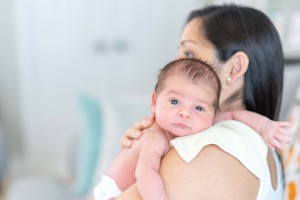
Prepare for RSV as we enter into respiratory virus season
As mentioned last week, with October here we have entered into respiratory virus season, and it’s important to take precautions now to avoid serious illness. This week we will share blogs on these illnesses (RSV, COVID-19, and flu), the precautions you can take now, how to find vaccines, and other vital information to help keep your families healthy this season.
 RSV (respiratory syncytial virus) is one of the many viruses that can cause respiratory illness, especially during the fall and winter. The Centers for Disease Control and Prevention (CDC)’s new forecasting site is predicting this upcoming respiratory virus season will have similar numbers as last season, with higher than normal numbers of flu and RSV cases nationally.
RSV (respiratory syncytial virus) is one of the many viruses that can cause respiratory illness, especially during the fall and winter. The Centers for Disease Control and Prevention (CDC)’s new forecasting site is predicting this upcoming respiratory virus season will have similar numbers as last season, with higher than normal numbers of flu and RSV cases nationally.
RSV is a common virus that usually causes mild cold symptoms. What makes it different from the common cold is that it has the ability to cause much more severe illness, especially in older adults, adults with chronic medical conditions or weakened immune systems, and in infants and young children. RSV is a frequent reason for hospitalizations in these vulnerable populations.
The good news is that this year, in addition to the common sense precautions that help protect everyone from respiratory illness, there are some new options available to help provide protection specifically from RSV.
For those 60 years and older, the CDC has approved two new vaccines, RSVPreF3 (Abrysvo) and RSVpreF (Arexvy), in order to help prevent RSV infections in individuals 60-years-old and older. Patients who are eligible are encouraged to discuss the vaccine with their healthcare provider to determine if the vaccine is right for them.
In late September, the CDC also stated that one of these new vaccines, Abrysvo, can be given to pregnant women, to protect their newborns with due dates falling within the fall/winter respiratory season from severe RSV illness. Specifically, in order to provide this seasonal protection, the CDC recommends one dose of the maternal RSV vaccine for pregnant women who will be at 32-36 weeks of pregnancy between the months of September through January. Since this vaccine has just recently been approved, it will slowly become more available throughout the fall and winter months, but may not be widely available initially. Pregnant women interested in the vaccine should discuss it with their OBs to determine if it is right for them.
For eligible infants and young children, a newly approved monoclonal antibody product called nirsevimab (Beyfortus) can provide an extra layer of defense that helps fight RSV infections and protect these young children from getting very sick. Like vaccines, this product helps prevent RSV, however it is not a treatment for a child already infected with RSV.
Nirsevimab was recently approved by the CDC and is recommended for all infants under 8 months old born during, or entering into, their first RSV season (usually October through March). It’s also recommended for infants and young children 8 to 18 months old who are at increased risk of severe illness. Interested parents and guardians should reach out to their pediatrician or healthcare provider to discuss further. This new product may not be widely available during the 2023-24 respiratory virus season, however ADHS will continue to work on providing additional information on where to find the new product this season.
Those with infants and young children who are at higher risk for severe illness should also talk to their healthcare provider about palivizumab (Synagis) and whether their child should receive it instead of nirsevimab. Infants and children that receive either Synagis or Beyfortus should not receive the other product during the same season.
For more information about RSV, visit our website or the CDC’s website. To find a vaccine near you, speak with your healthcare provider or visit vaccines.gov.
Check out tomorrow’s blog to learn more about COVID-19 prevention for the season.

